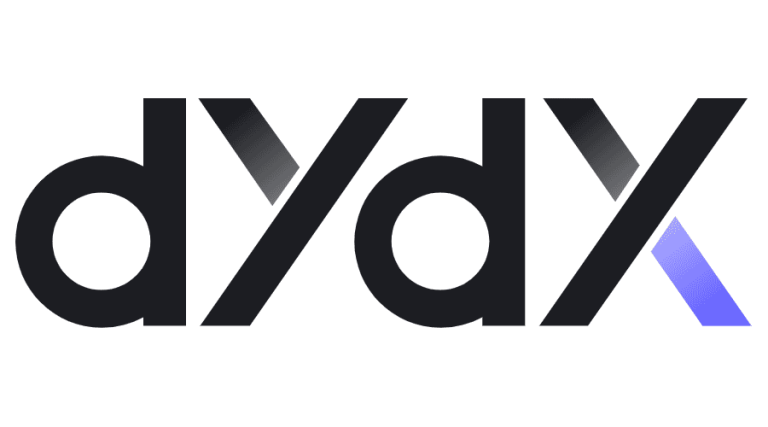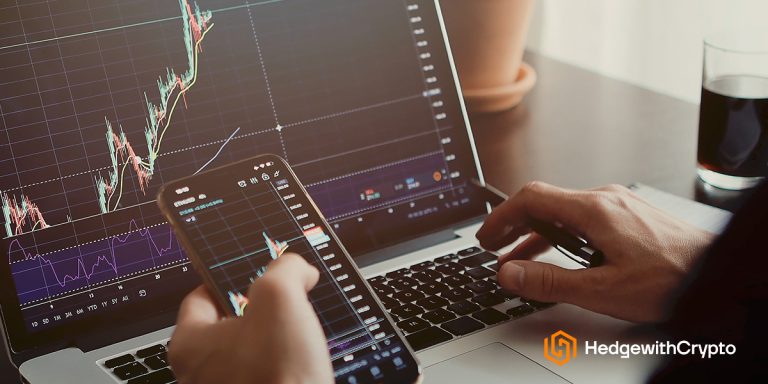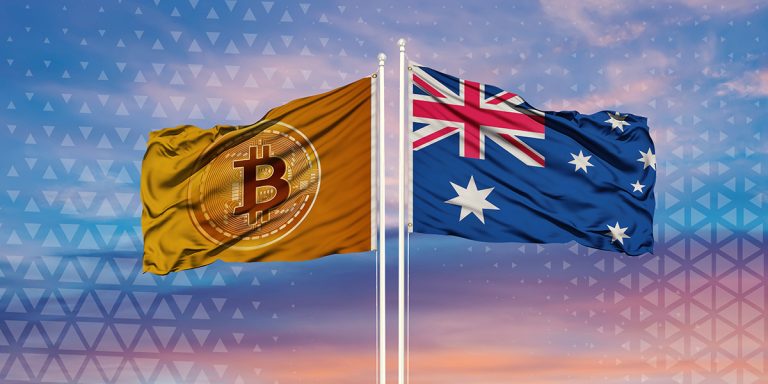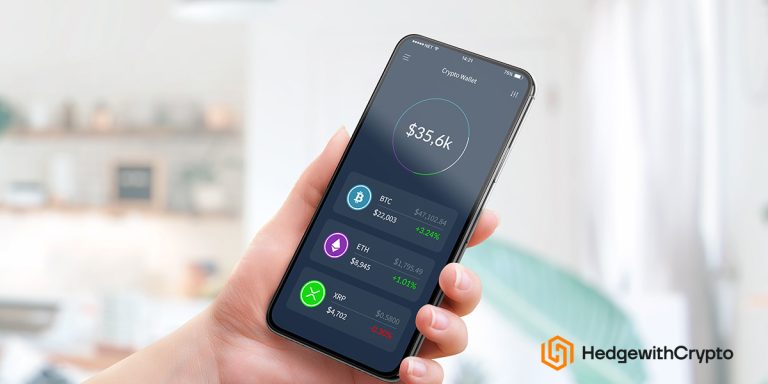We may earn a commission from links on our site, but this doesn’t affect our reviews. Learn more.
Hedge With Crypto is an independent publisher that provides objective and free content. Articles on our site may include links to our partners. If you click on these links, we may earn a commission. However, our editorial content remains unbiased, reflecting our own opinions or the general information available. For more information on our company policies, read the Affiliate Disclosure, Privacy Policy, and Terms & Conditions.
6 Best Decentralized Crypto Exchanges
Compare and select from this list of the best cryptocurrency DEXs in the market to trade peer-to-peer.
Hedge With Crypto aims to publish information that is factual and accurate as of the date of publication. For specific information about a cryptocurrency exchange or trading platform please visit that provider’s website. This information is general in nature and is for education purposes only. Hedge With Crypto does not provide financial advice nor does it take into account your personal financial situation. We encourage you to seek financial advice from an independent financial advisor where appropriate and make your own enquiries.
TABLE OF CONTENTS
These are some of the best-decentralized exchanges based on our reviews and rating methodology:
- UniSwap (overall top DEX exchange)
- PancakeSwap (best DEX for earning)
- dYdX (best DEX platform for traders)
- Curve Finance (best DEX for security)
- SushiSwap (top crypto DEX for features)
- Bisq (good DEX for Bitcoin trading)
Featured Partner
Kraken
Crypto platform for smarter investing.
4.8 out of 5.0
Kraken is a US-based crypto trading platform that is best suited for users who need crypto-to-fiat and crypto-to-crypto trading facilities. One of the most regulated and security-focused exchanges, Kraken is a great choice.
200+
USD, GBP, EUR, CAD, CHF, JPY & AUD
Bank transfer, SWIFT, SEPA, debit and credit card
0.16% (maker) and 0.26% (taker)
The Best Crypto DEXs Reviewed
1. UniSwap
UniSwap is one of the most popular decentralized exchanges in the market. The trading platform was founded in 2018 and has become a pioneer in the DeFi space with its “automated market-making” (AMM) model to swap cryptocurrencies without the need for a middleman.
Overall, UniSwap is one of the easiest DEX to navigate, in our opinion. With a clean UI, a huge range of trading pairs, and fees, the platform is one of the best choices for decentralized finance traders and our number one pick.
-
Trading Fees:
0.3% & network fee
-
Currency:
N/A
-
Country:
Global (USA allowed)
-
Promotion:
None available at this time
When it comes to using an AMM, volume is extremely important. Without volume, traders can encounter issues with liquidity, which in turn can lead to slippage. Trades with high slippage are likely to erase any cost-efficiency from using a decentralized exchange in the first place. This is why UniSwap is our top choice as the best DEX for trading crypto. UniSwap is regularly the highest-volume decentralized platform in the blockchain sphere, and often by a significant amount, as shown in the live data from CoinMarketCap. At the time of writing, the 24-hour trading volume was USD 1.4 billion and ranked #1 in the DEX market.
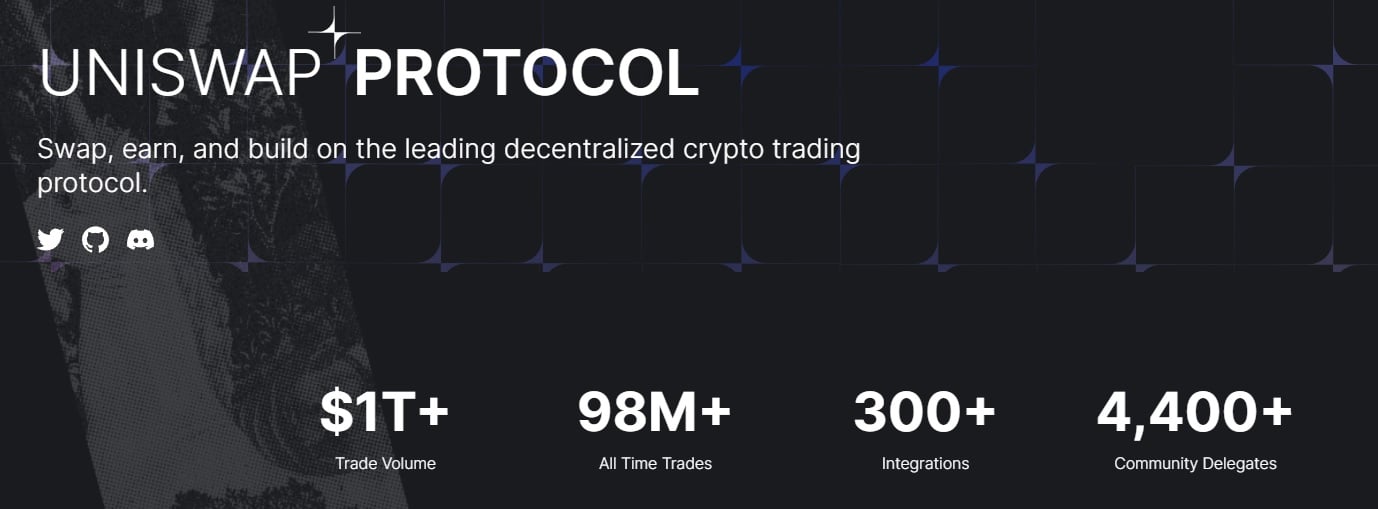
UniSwap is built atop the Ethereum network and supports a massive range of ERC-20 tokens. An advantage of using a UniSwap compared to other exchanges is the number of crypto-assets that are supported. Currently, UniSwap supports 50,000+ trading pairs on the exchange which gives greater flexibility for traders. There is also the option to add and trade “custom” ERC-20 tokens with UniSwap. Moreover, the wide range of assets for trading can also be deposited to earn yield and benefits.
The liquidity pool fees on UniSwap are highly variable, and traders will need to consider the impact of gas fees. In general, high-liquidity pairs can have fees as low as 0.05% but the standard trading fee is 0.3%. Exotic tokens can have trading fees of over 1%. The fees taken by UniSwap are split between the liquidity providers and proposed for their contribution.
Read our full review on Uniswap.
2. PancakeSwap
PancakeSwap is another high-volume and popular decentralized exchange. It's a great DEX to trade Popular assets such as Binance Coin (BNB) and Binance USD (BUSD) and the sought-after Ethereum tokens that can be swapped between each other. Overall, PancakeSwap offers a reliable decentralized exchange for swapping crypto and is also one of the best yield farming platforms to earn high rewards.
-
Trading Fees:
0.25%
-
Currency:
BSC tokens only
-
Country:
Global (USA allowed)
-
Promotion:
None available at this time
While the vast majority of DEXs were built atop the Ethereum blockchain, PancakeSwap launched in September 2020 on the Binance Smart Chain (BSC) blockchain. The benefit of Pancakewap on the BSC is its access to a wide range of cryptocurrencies that were otherwise inaccessible through older decentralized exchanges – BEP-20 tokens.
What makes PancakeSwap one of the best crypto DEXs compared to its competitors is the depth of earning opportunities available with high rewards. There are two key ways to earn crypto on the platform via farms and pools. At the time of writing, there is USD 4.8 billion worth of assets staked on PancakeSwap.
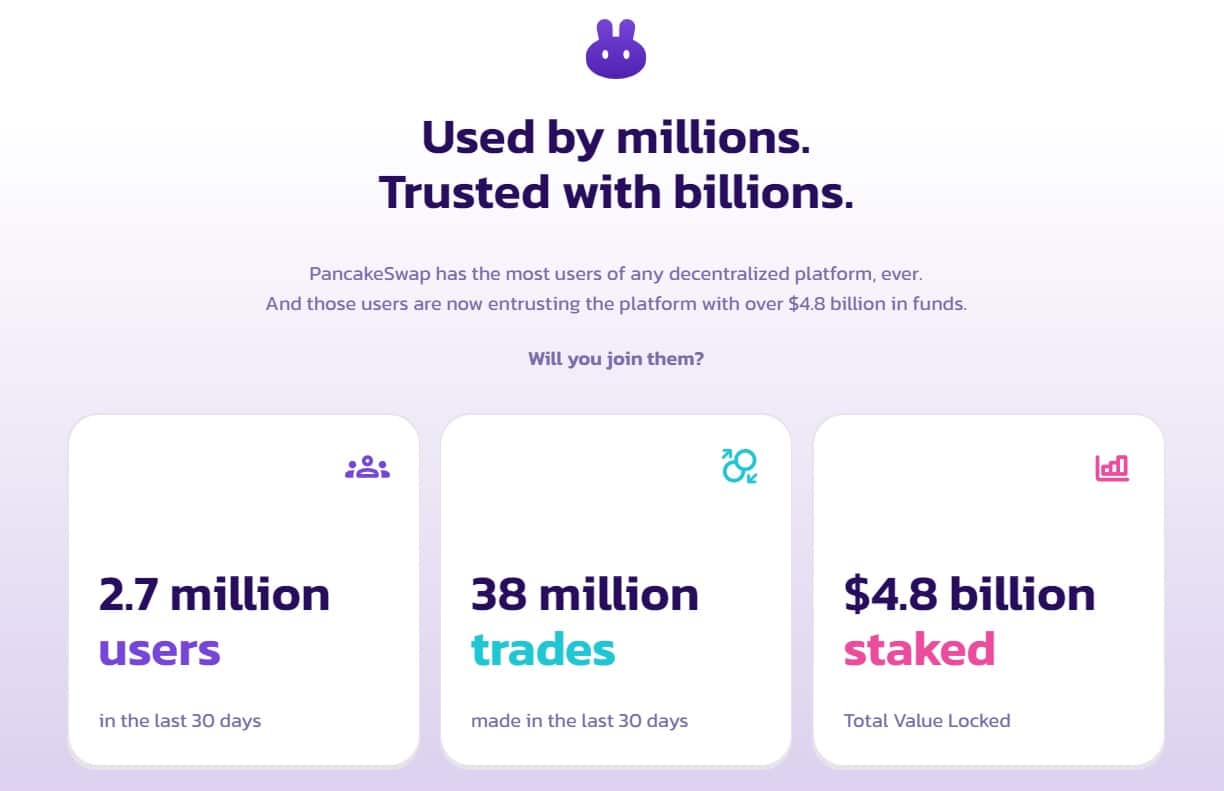
Staking pools on PancakeSwap work a bit differently on other DEXs. These pools allow traders to deposit and stake tokens for a return on investment. The most prominent pool is for CAKE, the native token of PancakeSwap. Users who lock their tokens can access high returns that exceed 100% APY. To put this in context, a $1,000 USD investment would give an estimated yield of $1,119 over a year (assuming the price of CAKE remained stable).
The con of PancakeSwap is the lack of staking pools. There are only 5 supported pools which is very limited compared to the best cryptocurrency staking platforms.
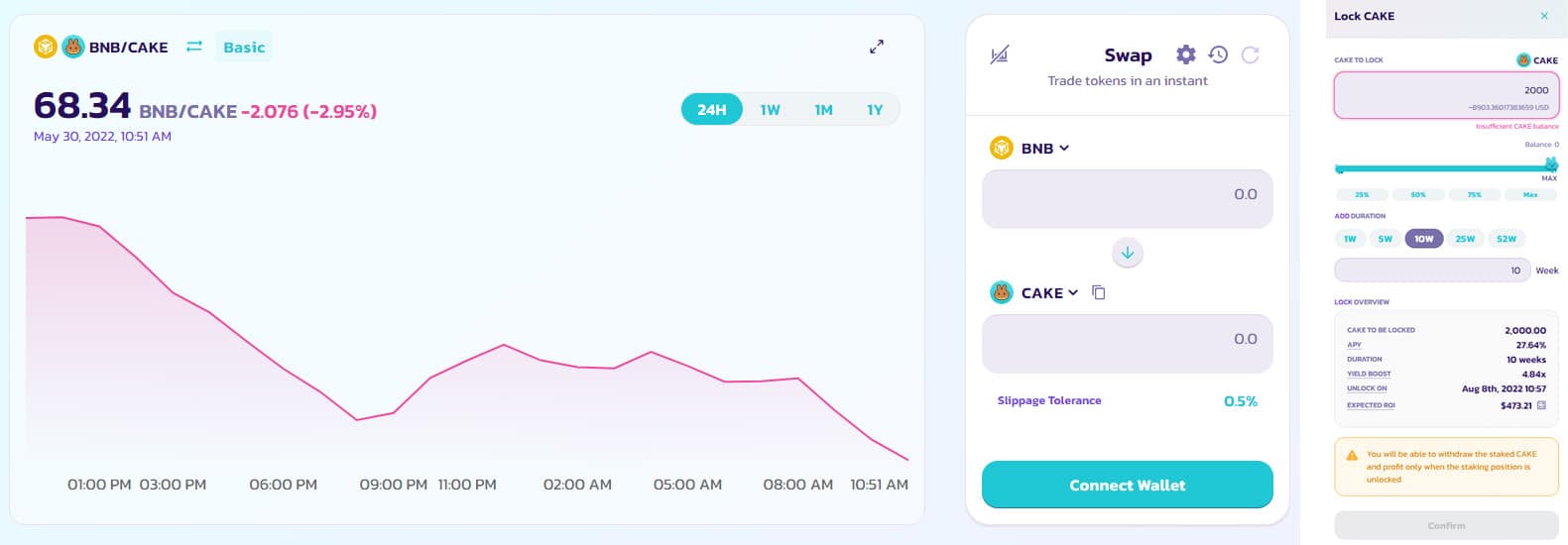
However, there is an abundance of opportunities on PancakeSwap's “Farms” section for earning opportunities. Hundreds of yield farms can be accessed by PancakeSwap users. It is also a great place to stake CAKE via multiple methods. Users can deposit their tokens and provide liquidity into a pool to receive a unique LP (liquidity provider) token for that specific trading pair. The LP token can then be staked within a farm. The farms on PancakeSwap offer some of the best rates in the industry. There are also the occasional community farms that offer over 400% APY.
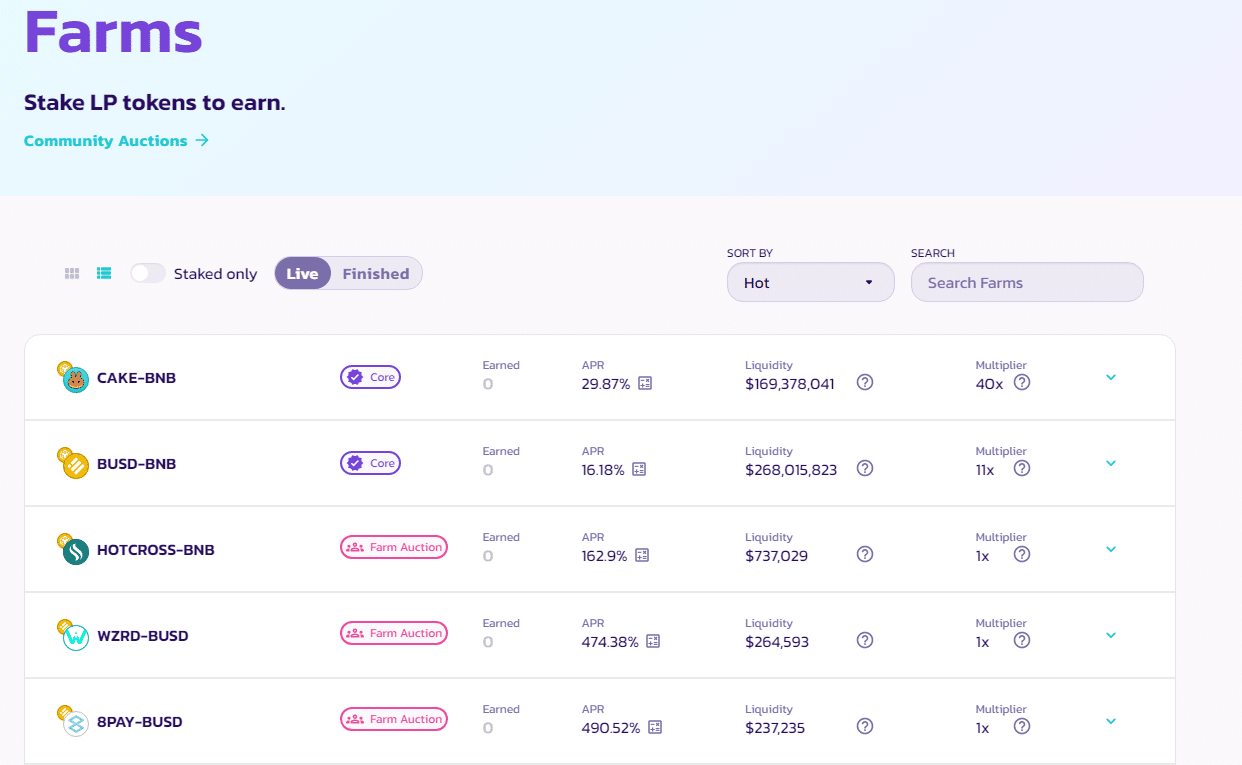
Another pro for users is the number of promotions and games where users can win CAKE, or other tokens. PancakeSwap has frequent trading competitions, a lottery, and a predictions hub for betting on whether the price of specific cryptocurrencies will increase or decrease over a set period of time. PancakeSwap even supports NFTs, so users can buy, sell and eventually mint their own non-fungible tokens on the platform.
Read our full review on Pancakeswap.
3. dYdX
Investors have access to customizable trading charts on dYdX to keep up-to-date with the market as it moves. The 24-hr trading volume on dYdX is the 2nd highest which means the platform lives up to its promise of deep liquidity that in turn benefits traders too. Even though dYdX isn’t exactly ideal for some, it is a trusted, high-liquidity decentralized exchange that has become the go-to choice for advanced traders seeking leveraged contracts.
-
Trading Fees:
0.02% (Maker) / 0.05% (Taker)
-
Currency:
USD, EUR, GBP, AUD, CAD, +26 Others
-
Country:
Worldwide (USA allowed with restrictions)
-
Promotion:
None available at this time
dYdX was founded and launched in 2017 and has amassed over 25,000 traders on the platform. dYdX has all the markers of a typical DEX – it's built on the Ethereum network, customers can swap a range of tokens, and rewards are paid out for volume traded. It was one of the first decentralized exchanges to offer advanced financial tools to DeFi users. Well-versed traders had long been looking for a decentralized alternative to amplify their gains (and potentially losses), and dYdX has captured that market.
While dYdX supports a fairly limited range of coins that can be traded on its platform, the majority of the most popular cryptocurrencies are available to trade. Moreover, the platform allows margin trading with up to 20x leverage on assets such as ETH, SOL, BTC, ADA, DOGE and ATOM which is a unique offering compared to the DEXs above. However, there are more accessible ways to trade a greater selection of markets and coins with leverage. For more information, read our list of the best crypto margin platforms.
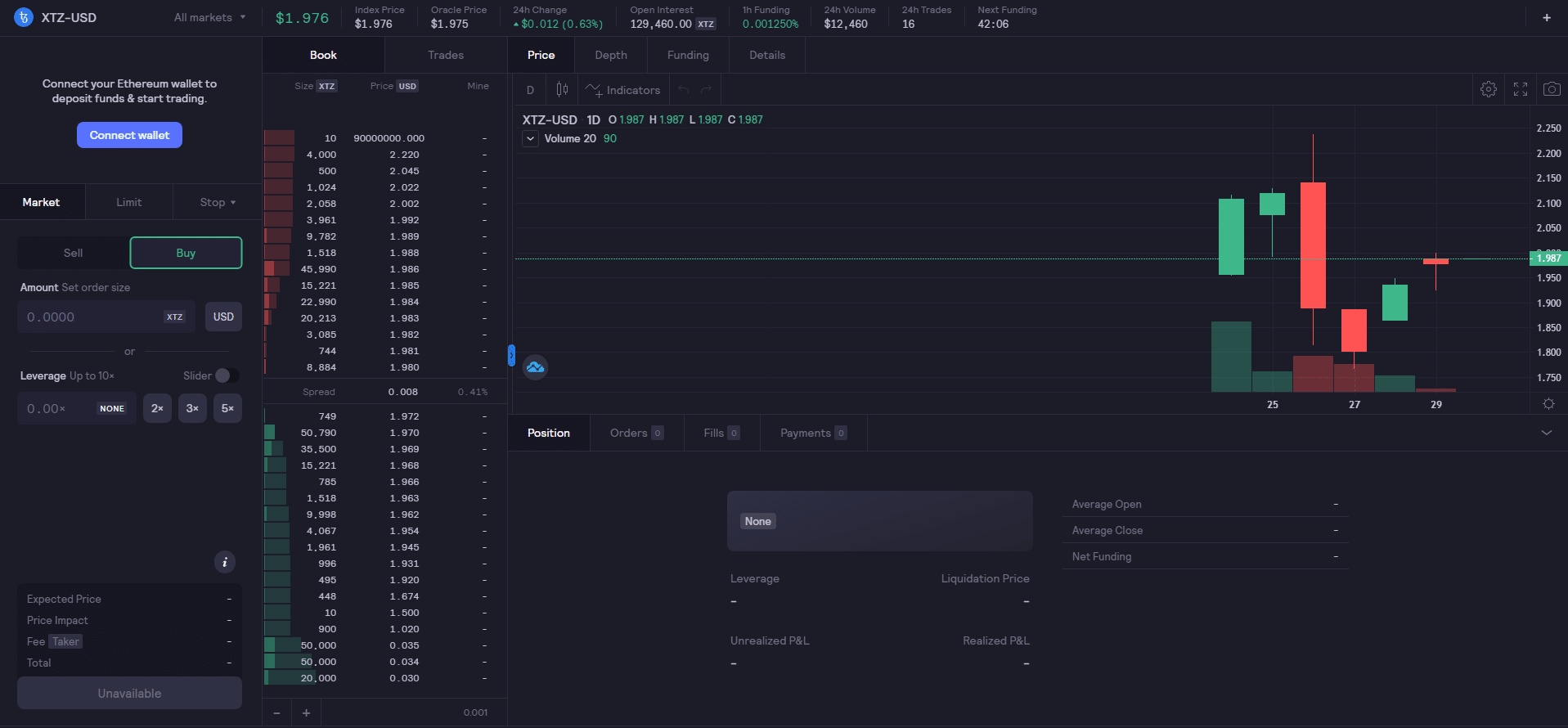
Featuring a range of contracts that can be traded with margin on dYdX, new pairs are continually being added to the platform. At the time of writing, there are 37 perpetual contracts that can be traded on the DEX. For traders, the charting and trading terminal is modern and sophisticated with the standard features and tools on a centralized platform. These include TradingView charting, drawing tools, and technical indicators.
Read our full review on dYdX.
4. Curve Finance
Curve.Finance is a decentralized exchange built on the Ethereum network that has reasonable liquidity. The platform allows traders to swap crypto assets and has a focus on stablecoins such as USDT, USDC, DAI, sUSD, and Wrapped Bitcoin. It uses an automated market maker model which means the platform relies on liquidity pools to provide sufficient liquidity for traders to swap coins. While the design of the platform is underwhelming, Curve Finance is one of the most powerful DEXs on the market.
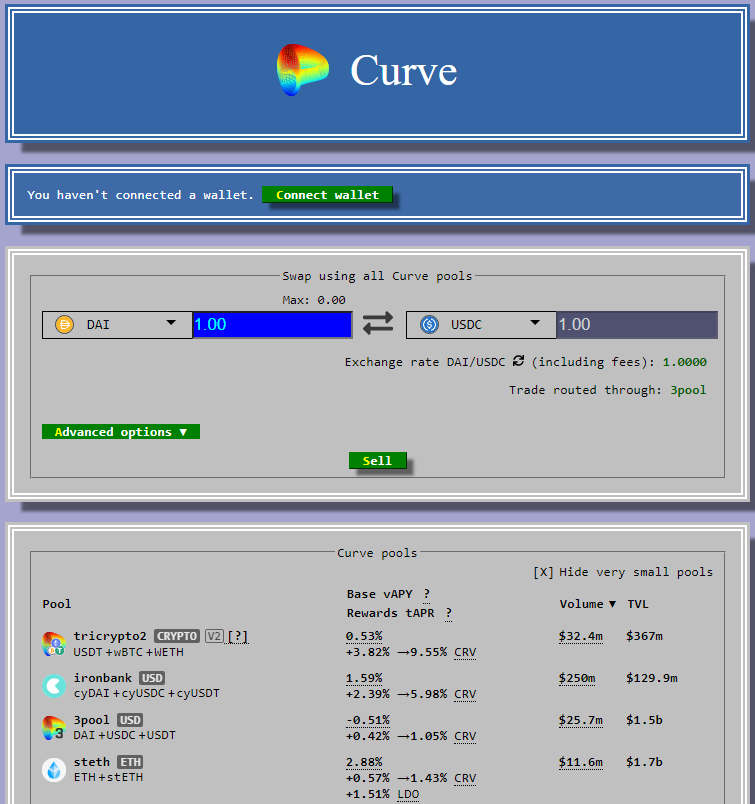
Curve Finance doesn’t have the depth of liquidity pools on offer as some of its competitors. Although there are still well over 50 trading pairs provided from a variety of blockchains which include Ethereum, Avalanche, Fantom, Harmony, Polygon and others. At the time of writing, there is a daily trading volume of 187 million in Curve Finance's pools according to its website,
What sets Curve.fi apart from other decentralized exchanges is its transparency. Trading with a DEX can be a complex and risky process – but the majority of DeFi products don’t really disclose this. Curve Finance states the risks involved with trading and earning yield in pools on the platform.
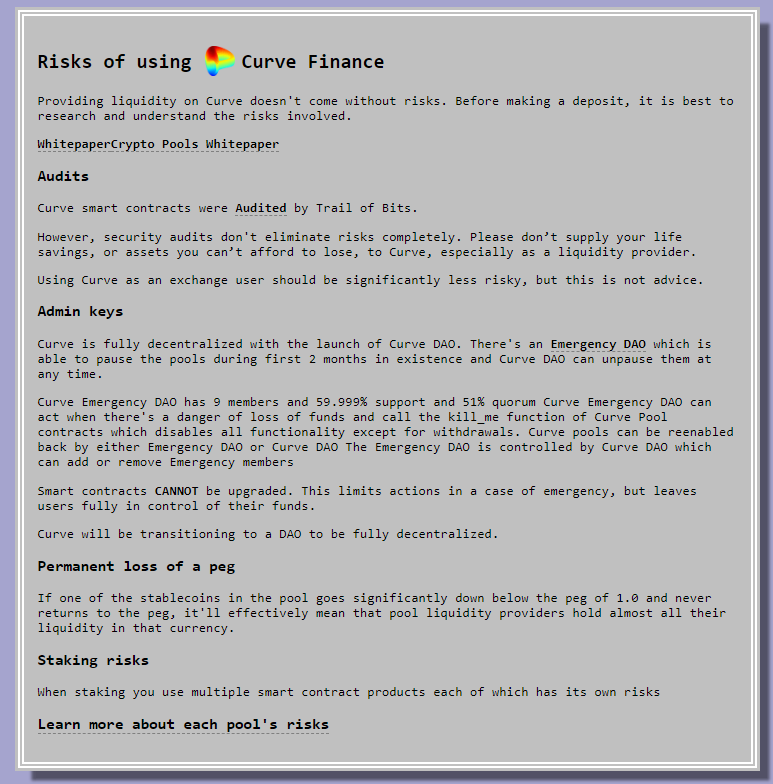
As for security, Curve Finance is a secure DEX that regularly uses third-party auditors to assess its code and ensure it is fully functioning. They have set up their decentralized autonomous organization (DAO) that can trigger certain events in emergencies. For example, any new liquidity pools that end up being dangerous or unsustainable can be paused within their first 2 months of operation. As of May 2022, there have been no successful hacks.
Curve.fi's governance token, CRV, is an integral feature of the exchange that can be received as a reward for providing liquidity and then staked for a competitive rate of approximately 4.4% APY. Once staked, CRV will become veCRV, and holders can participate in the Curve DAO and its governance by voting on proposals and helping secure the platform’s economic foundation.
5. SushiSwap
SushiSwap is a constant top-performing decentralized exchange by volume and trading volume metrics. The exchange is a fork of UniSwap and has a similar user interface and is ideal for DeFi enthusiasts in the DeFi space. SushiSwap has all the hallmarks of a good DEX – staking opportunities, liquidity pool provision, and swapping over 450 assets combined with useful features.
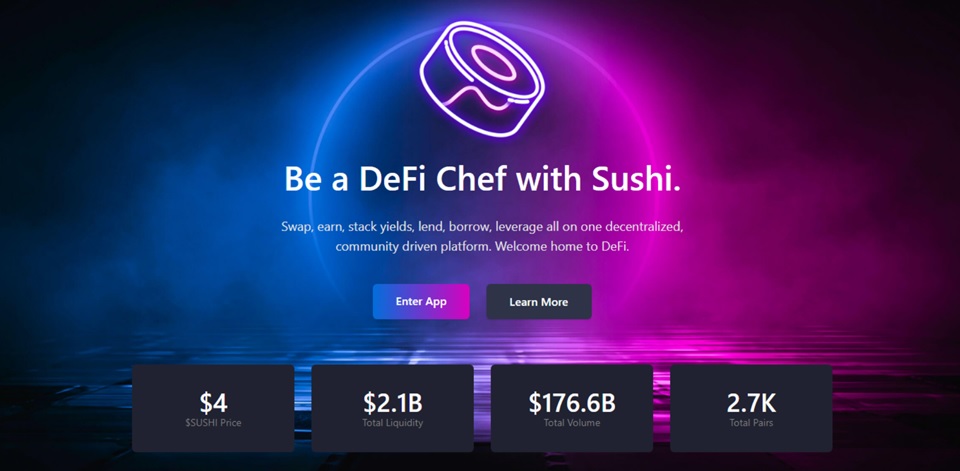
Gas fees are the kryptonite of high-volume traders, particularly on the Ethereum network. As DeFi has become more popular, it has also become more congested, leading to a hike in gas prices – just like in reality. Gas can very quickly eat into profit margins and must be accounted for. This is where SushiSwap offers a unique product with its “BentoBox” smart contract feature.
Essentially, BentoBox acts as a token vault – users can deposit and lock supported tokens. With smart contract integration to a number of third-party dApps, the platform can algorithmically determine the best yield farming strategies with the least number of transactions and gas fees. In short, the advantage of Sushiswap's BentoBox is paying less gas fees to use DeFi earning protocols. Best of all, tokens locked in the smart contract will automatically accrue interest on top of interacting with other applications.
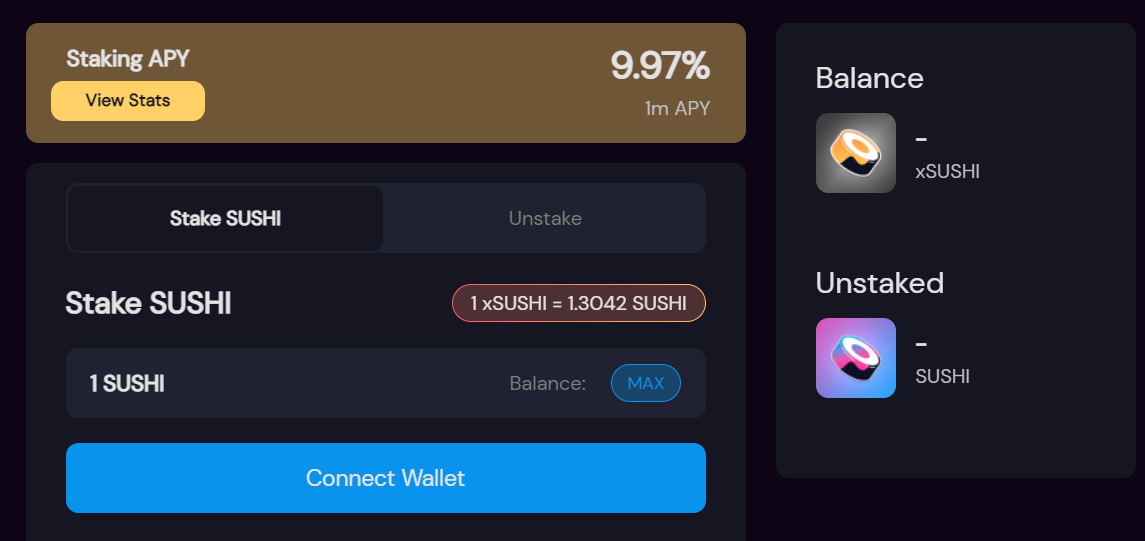
Moreover, the SushiSwap platform allows DeFi traders to borrow and lend from a huge range of trading pairs. If enough collateral is provided, traders can leverage their borrowing power by up to 2x. While this is substantially lower than other DeFi margin trading opportunities, SushiSwap is a powerful DEX to swap, earn, earn yield, lend, borrow and leverage all on one decentralized platform. To learn more about the DEX, read our full review on SushiSwap.
6. Bisq
Bisq is a decentralized exchange that specializes in Bitcoin trading on a peer-to-peer network. What makes Bisq a great option is that it's one of the best no KYC crypto exchanges. Users can execute Bitcoin traders on the platform without a third party to manage the funds. This means Bisq does not hold any Bitcoin assets. A Bitcoin escrow feature is used to ensure scammers cannot operate while the app also assists that data is not stored long-term on its servers.
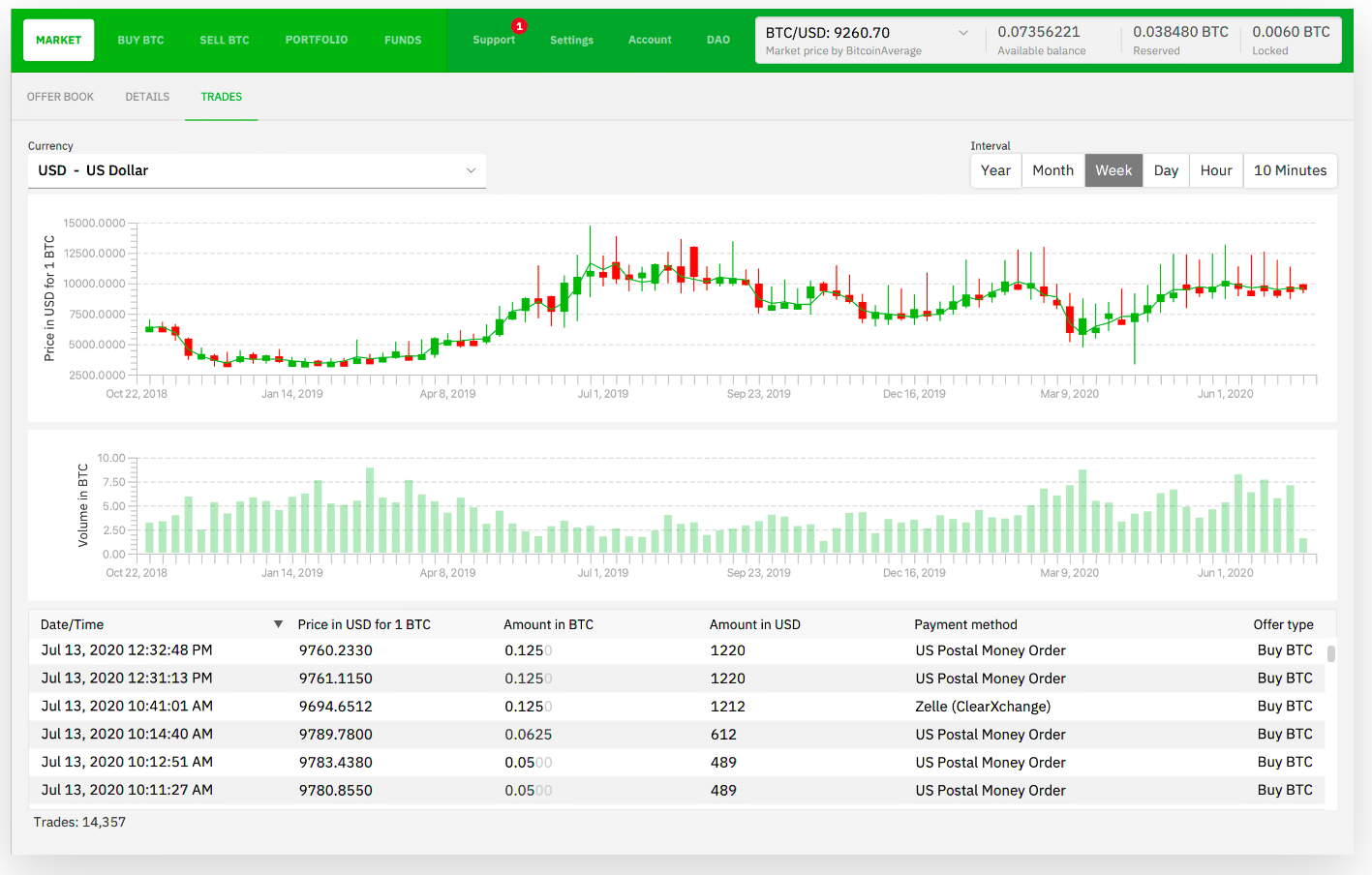
The DEX provides access to over 50 markets including fiat currencies and cryptocurrencies like BTC, Zecash, Ether and DAI. Its fee rates range from 0.7% to 0.1% which is similar to the DEXs mentioned above. There are cons with Bisq – the DEX is only available as a desktop application that has to be downloaded on a Windows, Linux or Mac operating system – there is also no mobile support.
What To Look For When Choosing A Crypto DEX
There are 217 decentralized exchanges at the time of writing which have their unique pros and cons. Choosing the right one can be a challenge given the wide selection and recent uncertainty around several platforms' security. When looking for the best crypto DEX to use, the following aspects should be considered:
- Security. The safety of funds should be the first assessment made when choosing a decentralized exchange. DEXs can be prone to DeFi hacks – much more so than most popular centralized options. In addition, DeFi developers often remain anonymous, making it difficult to research their background and ensure they aren’t attempting a crypto scam. Generally, most of the popular DEXs are legitimate platforms and will be safer to use than lower-volume alternatives. It’s always worth finding out if the DEX has ever experienced a hack or exploit in the past to gauge its security measures, although, in reality, every decentralized platform is at risk of a hacking event. Reading customer reviews can be another great way to understand more about the risk factors of using various decentralized exchanges.
- Supported cryptocurrencies – It is becoming more common for decentralized exchanges to be “multi-chain”, meaning they support coins and tokens from a variety of blockchains. However, this is not always the case. Users wishing to trade Ethereum assets, for example, will want to avoid DEXs that only support Solana ecosystem tokens.
- Function – Decentralized exchanges offer a unique range of earning opportunities previously unavailable to crypto investors. Quite a number are becoming multi-faceted, combining earning hubs with trading protocols and occasionally even lending/borrowing. However, users should always assess their individual DeFi goals to ensure their chosen DEX is compatible.
- Fees – Fees often work a little bit differently on DEXs and can sometimes be completely avoided by staking governance tokens. However, they are worth considering as fees can alter profit margins on trades and other earning activities.
- User design – DEXs are not the best crypto applications for beginners and can be complicated to navigate, join pools or swap crypto. DeFi is designed for intermediate or advanced cryptocurrency investors. For those that are new to DeFi swaps, platforms such as UniSwap, PancakeSwap or SushiSwap are well-designed for beginners.
Frequently Asked Questions
What is a decentralized crypto platform?
Decentralized exchanges (DEX) are cryptocurrency platforms that connect buyers and sellers without a central authority or middleman. They are non-custodial in that crypto-assets are traded directly between users and always remain in control of the private keys. The benefit of a DEX is lower costs of trading and earning opportunities for investors that provide liquidity.
Are decentralized crypto exchanges safe?
Decentralized exchanges can be safe to use if appropriate research is conducted. That said, DEXs are inherently riskier than other centralized options. They tend to be more vulnerable to hacks, bugs and exploits and often lack the backing of insurance funds.
What’s the safest decentralized exchange?
Curve.fi has undergone multiple security audits, has contingencies in case of emergency and has never encountered a significant, public hack. However, there’s not really such a thing as “safest” DEX, as any crypto exchange, decentralized or otherwise, could be hacked at any given time.
Is Binance decentralized?
No, Binance’s main platform is a centralized trading platform. However, the introduction of the Binance Smart Chain allowed Binance to create its own decentralized exchange, known as Binance DEX. Binance DEX utilizes BNB and offers lower trading fees than its centralized exchange. For more information, read our full review on the Binance platform.


